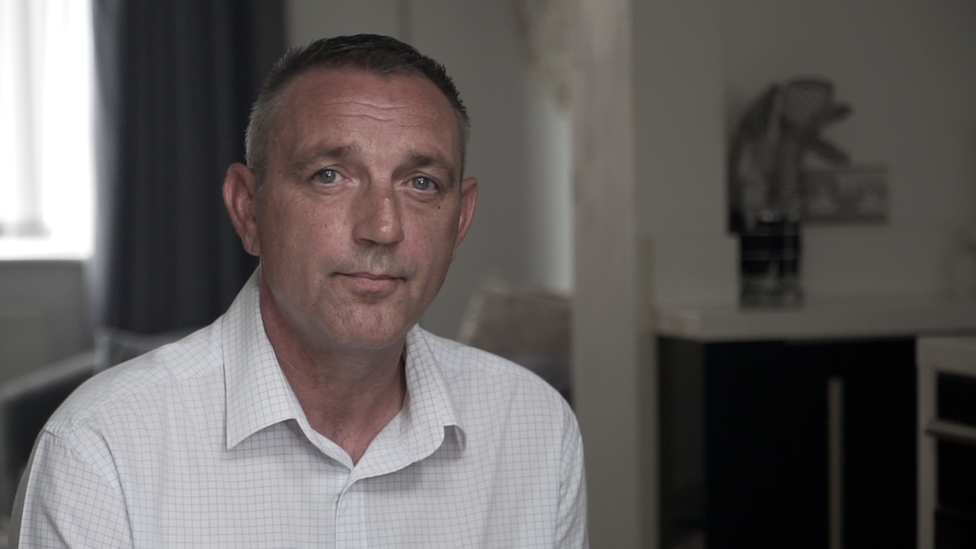What happens in an alcohol addiction detox unit?
- Published
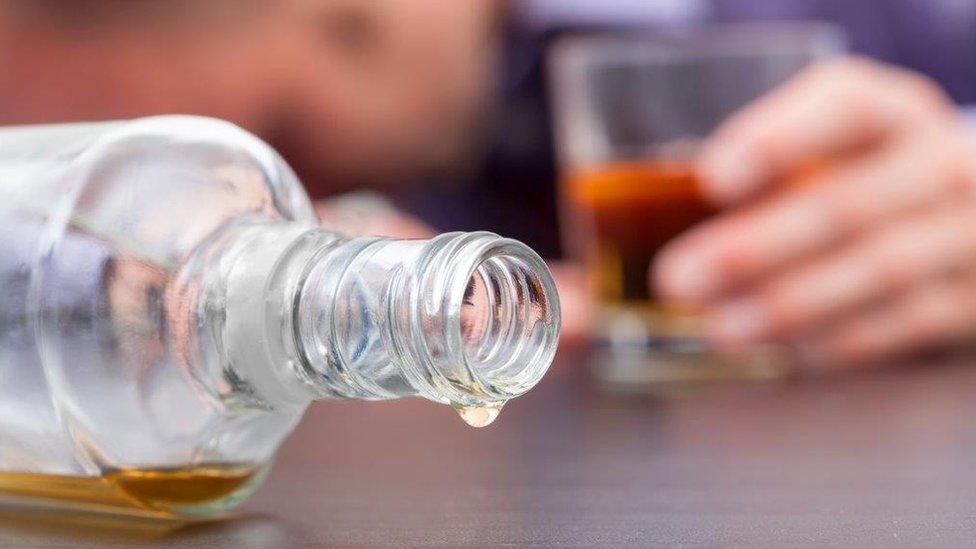
Problem drinking increased during the Covid pandemic
The number of deaths directly caused by alcohol surged during the early months of the coronavirus pandemic in the UK, realising the fears of experts about the damaging effects of increased home drinking.
After remaining largely stable for nearly two decades, deaths due to alcohol increased 19%, external to 8,974 in 2020 - the fastest year-on-year rise on record.
While figures for 2021 - which saw more lockdowns and social isolation - have yet to be released by the Office for National Statistics, NHS-commissioned research suggests there could be thousands of excess deaths.
This will stretch alcohol addiction centres even further. But what goes on inside them? How does treatment work and what is it like for patients?
The BBC has been given exclusive access to the largest NHS inpatient detox centre in the UK - the Chapman-Barker Unit in Prestwich, Greater Manchester, which is run by Greater Manchester Mental Health NHS Foundation Trust,
Here we describe a typical day in the life of the centre, its staff and its patients.

The first of the day's planned admissions has arrived at the unit.
While calm and outwardly smiling, he is clearly nervous, like many who come here.
"It's the bravest thing they'll ever do - take that step forward and say 'I need help - please help me'," says ward manager Clare Hilton.
Before the new arrival even leaves reception, he needs to be breathalysed.
"It seems harsh sometimes," Clare adds. "They've literally walked in… but the sooner we start on the monitoring, the quicker we can give them the medication to minimise the withdrawals."
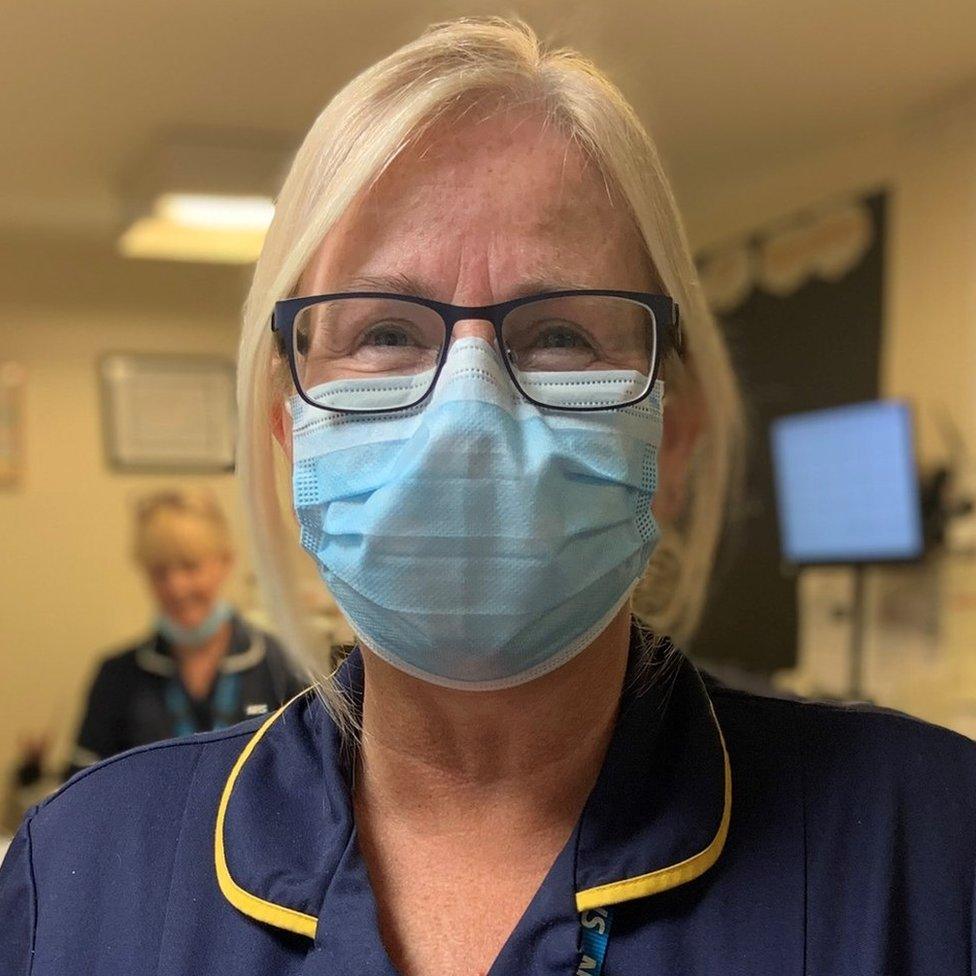
Clare Hilton is a ward manager
The Chapman-Barker Unit is one of only seven such centres in the UK.
For many patients who come here from across the north of England and even further afield, it is their best hope of conquering their addiction.
Patients generally spend two weeks here - sometimes longer - being treated by a team of clinicians who have a range of specialisms.
They will not only supervise the withdrawal from alcohol but also offer targeted psycho-social therapies to try to work out what drives their addiction.
Having been breathalysed, the new arrival is given a tour of the unit and shown to his room.
He will now get a full medical and then the medication can start.
"It's their time," says Clare. "You never get this time in terms of looking after yourself… I tell them: 'Use it. Soak up everything we can offer you.'"
The new patient
One patient, who we will call Gary, speaks with me a couple of hours after his arrival, just as his initial medical check concludes.
Genial and enthusiastic, he has the air of a man who has his mind made up.
"I've been alcohol dependent for the last 30 years," he tells me. "And now I'm here I'm not going to throw it away.
"No pain, no gain. When I go from here in two weeks' time there's no more alcohol. That is it".

The BBC Action Line offers information and support for people concerned about either their own or their loved ones' alcohol use

Gary tells me he has spent months waiting for the funding to be approved for his stay here.
"Basically it was do or die - I was dying. I'll be 60 in December and I thought: 'Am I going to die or am I going to have the chance of another 10 years?'
"I'd rather get another 10 years and a chance of happiness."
The addictions specialist
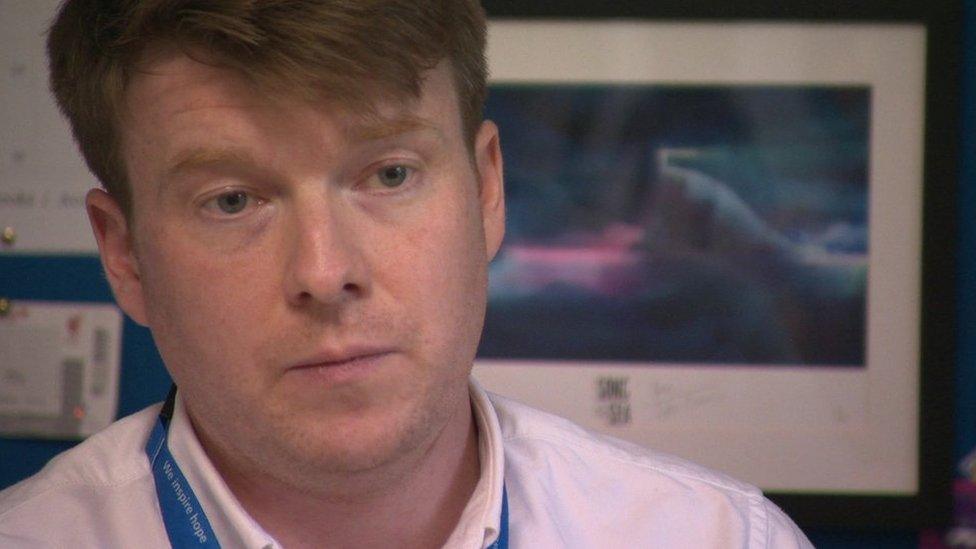
Dr Kaar says addictions are largely caused by life circumstances and events
Dr Stephen Kaar is one of two consultants on the unit who specialises in the psychology of addiction, and the practicality of withdrawal from a variety of substances.
Alcohol is one of the most dangerous substances to withdraw from.
If done badly it can be life threatening because of the chemical imbalances that long-term alcohol abuse creates in the brain.
"In very severe dependence, people can get up to 50% of their calories from alcohol," he says.
"So if you're getting 50% of your calories just from this drink, which has zero nutritional value, but does give you calories so your body can keep functioning, you're neglecting all the other nutrients that you need."
A particularly important nutrient is vitamin B1 or thiamine, which protects brain cells.
New arrivals are often given an intravenous drip of thiamine and other vitamins.
They are also given medication to calm the brain down, because the sudden removal of alcohol can overstimulate the brain and cause seizures.
"The highest risk of seizures is in the first two days," says Dr Kaar.
"In the next three to four days there's a high risk of developing something called Delirium Tremens where people can get very confused, very agitated, hallucinate."
Patients who experience this need constant one-to-one monitoring.
By the end of the first week though the worst of the withdrawal symptoms are generally over.
At that point the team concentrates more on psychological therapies and treatment.
Dr Kaar says addictions are largely caused by life circumstances and events.
"A lot of it's down to environment and luck, essentially. It's where you were born and what kind of things life threw at you."
The patient in recovery
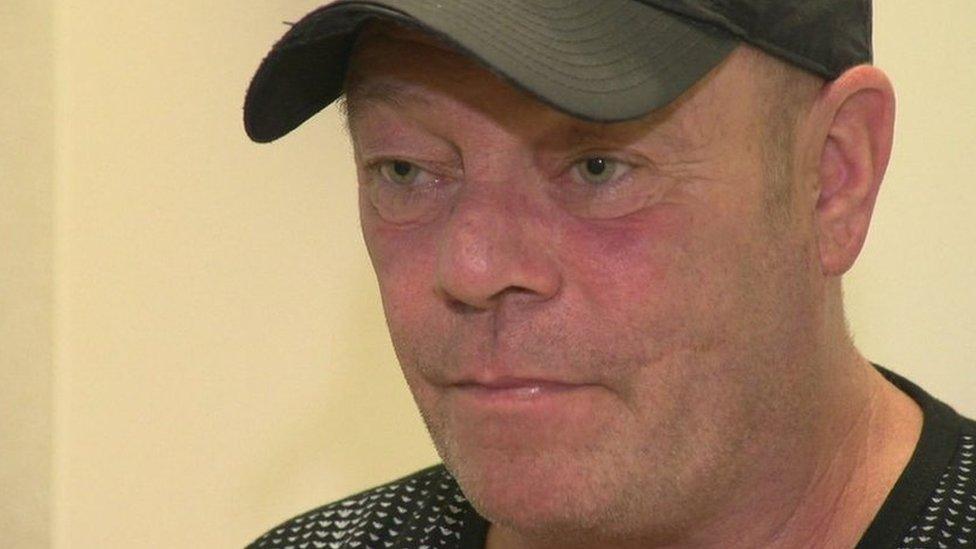
Tony started drinking as a teenager when he worked as a builder
Tony remembers being told to "stop drinking or I die - simple as that".
In the small room he has occupied for the past week and a half, he recounts his 40-year battle with alcohol.
It all began in his late teens when he was working as a builder.
Tony says in the 1980s there was a real culture of drinking after work.
"I'd be in there for two hours and I'd maybe drink four or five pints and go home," he adds, "but then I started drinking at home as well."
Tony tells me he was careful not to let alcohol impact his job, which he loved.
But a few years ago problems with his back forced him to give up work. His drinking increased dramatically.
"I was very depressed because I loved work… I found myself at home and that's when I started drinking spirits. And then it went from just having the odd glass to finishing the bottle."
Like many people, Tony says his drinking was not helped by the Covid lockdowns.
And then, last autumn, Tony's son took his own life following many years struggling with depression.
"When he passed… I just wanted to drink. And I did," Tony remembers.
'Miracle'
After the immediate shock had passed, though, Tony says he started to really examine his own life.
"That made me think: 'I really have to stop drinking now because I need to be strong for my family and for myself'."
Tony tells me about his grandchildren, who he clearly adores.
On the chest of drawers, there is a handmade card from his granddaughter which reads: "You help me to be strong like a tree."
Tony shows me the poetry he writes to keep his mind occupied, including poems remembering his son.
He tells me he has not had a drink for 11 days, his longest time sober in four decades.
Tony's eyes fill up.
"It really is a miracle because I never ever thought I could feel like this," he says.
"I feel like I've found myself and it's such a long time ago that I was Tony.
"And now I'm Tony - but I don't drink any more."
The former patient
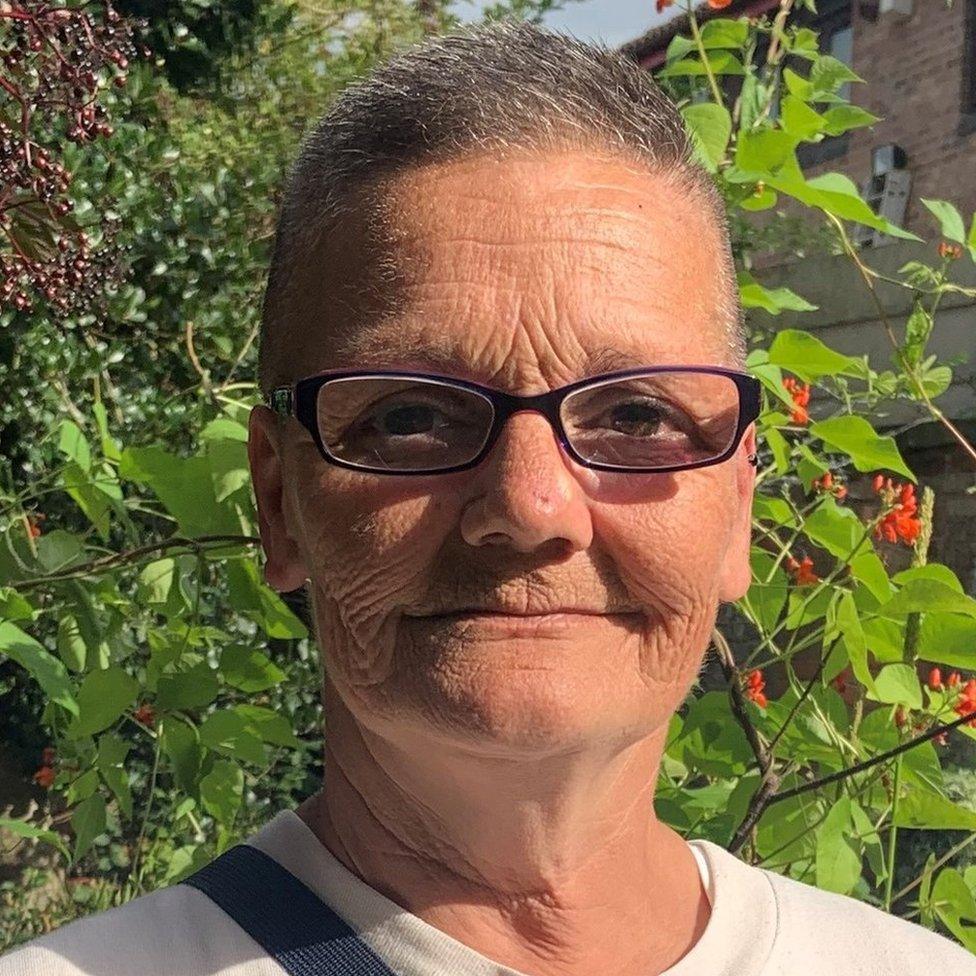
Levi says recovery from alcoholism "is a lifelong thing"
Levi left the Chapman Barker Unit in the spring of 2021.
"It's been hard because once you put the alcohol down you've got to deal with your emotions and it's hard to do that without using," he tells me.
"It's working out ways to manage those emotions and how to deal with the cravings. It's been a long journey, but I'm getting there."
After leaving the unit, Levi spent three months at a rehabilitation centre run by the charity Thomas.
He is now in the charity's outreach programme, which runs regular activities and meetings for people recovering from addiction.
"You think you can do it by yourself but you can't," Levi tells me. "You need that support around you.
"Recovery's a lifelong thing. I didn't become an alcoholic overnight and I'm not going to recover overnight."
At both the unit and charity, group activities and therapy are seen as an important part of breaking the pattern of addiction.
Regular therapy groups, often run by former patients, are vitally important.
One day Levi hopes to help organise the sessions himself.
"If it wasn't for the Chapman-Barker Unit, I probably wouldn't be sitting here talking to you now," he reflects, describing the unit as "amazing".
"My future looks good - it looks really positive.
"It's helped me a lot being in detox and being here so I hope one day I can do that and give back."

Why not follow BBC North West on Facebook, external, Twitter, external and Instagram, external? You can also send story ideas to northwest.newsonline@bbc.co.uk, external
Related topics
- Published26 July 2022
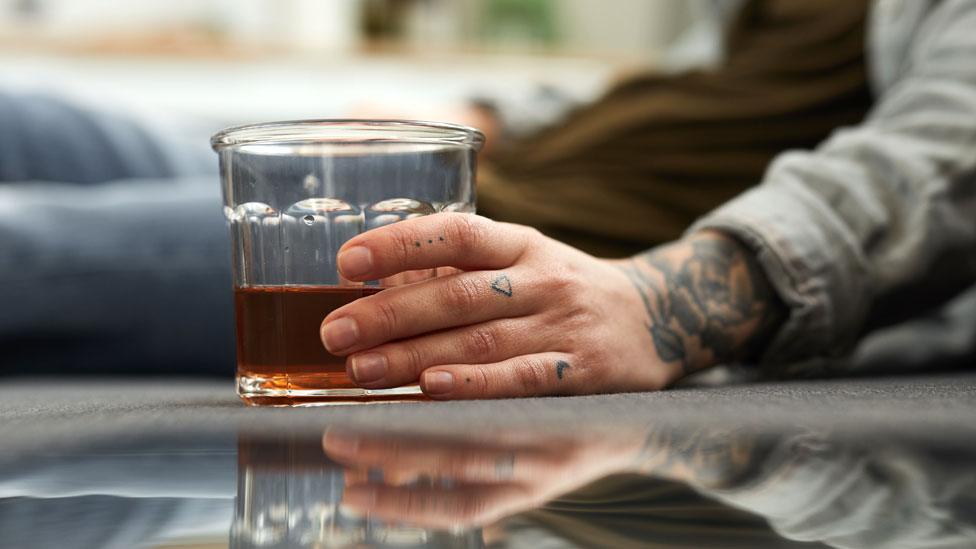
- Published20 January 2022
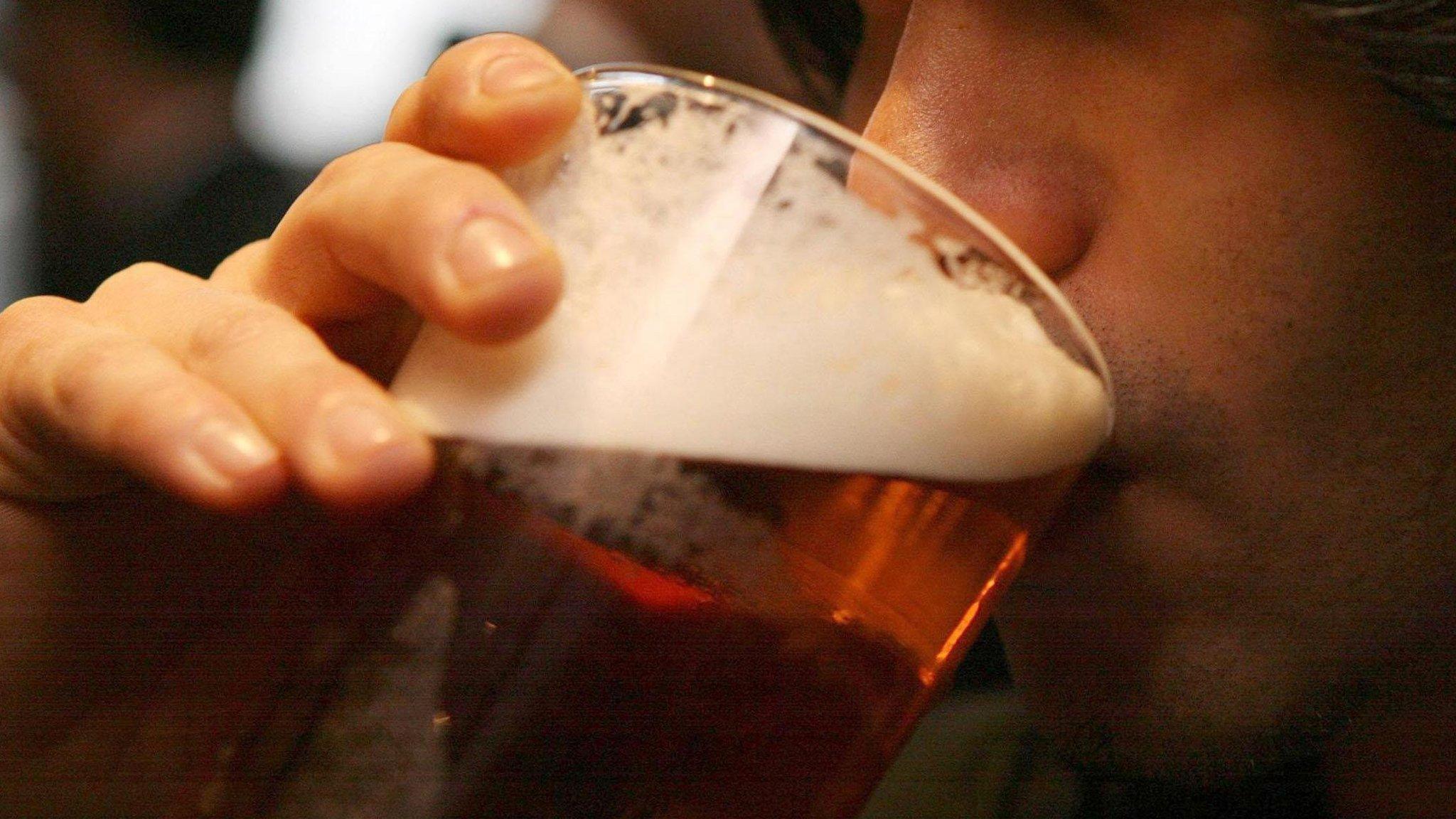
- Published23 August 2020
